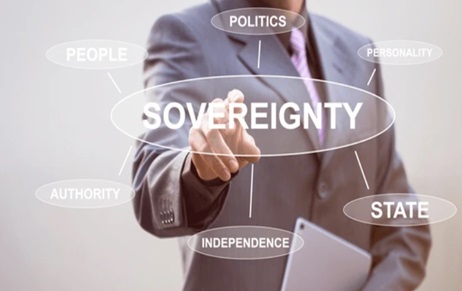Bodin argued that sovereignty is indivisible and absolute and that it should be concentrated in…
Viacom Vs YouTube
Technology seems to have found its place in the courtrooms also, these days. Viacom, an American global mass media company, sued YouTube, a video-sharing site owned by Google on the basis that YouTube had indulged in rampant intentional copyright infringement of videos that were originally owned by Viacom. This suit was for a mind-boggling $1 billion.
YouTube, being popular among the masses, gets 800 million users a month and roughly 60 hours of new videos are uploaded to the site every minute. Viacom filed a complaint against YouTube on March 13, 2007, alleging that the later had uploaded the copyrighted material owned by Viacom. Over 150,000 clips of Viacom were viewed more than 1.5 billion times on YouTube including popular shows like South Park, without the permission of Viacom. The allegation included that YouTube did this to earn more revenue through their advertisements and traffic incurred on their website. The English Premier League, The Rodgers and Hammerstein Organization, and the Scottish Premier League, later on, were merged in the suit as the other complainants.
In July 2008, during the pre-trial phase, a U.S. District Court for the Southern District of New York ruling came in favor of Viacom, stating that details of all the users of YouTube had to be tracked by them. There was an uproar over this ruling that the users were now exposed and their privacy was infringed upon. However, Judge Louis Stanton was of the opinion that YouTube is not a ‘video tape service provider’ as provided in the Video Privacy Protection Act 1988 so the data of the users are not protected under this Act. However, later, Google agreed to hand over the data of the users to Viacom and the other complainants, but only after making it anonymous. Although, the setback was that the data of the employees of both the parties, were handed over, without any anonymity.
Viacom argued that both YouTube and its owner Google knew about the infringement but they did not do anything about it. Google and YouTube retaliated back saying that they were entitled to ‘safe harbor’ protection under the Digital Millenium Copyright Act (DMCA) since they had insufficient notice of the alleged offenses. This defense will not be available to someone who derived a financial benefit from copyrighted material if he had the right and ability to control it.
Under the Act, Web hosting companies are not required to keep track of every file downloaded by their users. The DMCA is flawed since it does not cover YouTube. YouTube claimed that they did not know about the infringement and that they do not keep a check on the videos uploaded. This is a completely flawed argument since YouTube removes videos that are reported as spam, if they have pornographic content or if the original owner restricted permission for the public at large.
On June 23rd 2010, Judge Stanton decided that “When YouTube was given notices, it removed the material. It is thus protected from liability” under a provision in the Digital Millenium Copyright Act (DMCA). He further stated that while there was an occasion in 2007 when Viacom sent YouTube a single takedown notice for 100,000 videos and the later took them down by the next day.
While YouTube clearly emerged victorious in this case, this decision followed established judicial precedents that online services like YouTube are protected when they work cooperatively with copyright holders to help them manage their rights online.
Viacom has said that it plans to appeal against this decision. Maybe then the DMCA will be interpreted in a more liberal manner. You can be sure, that all the online service providers would be watching this case, whenever the appeal happens.
About the Author: Ms. Madhuri Iyer, Trade Mark Attorney at Khurana & Khurana and can be reached at Madhuri@khuranaandkhurana.com



